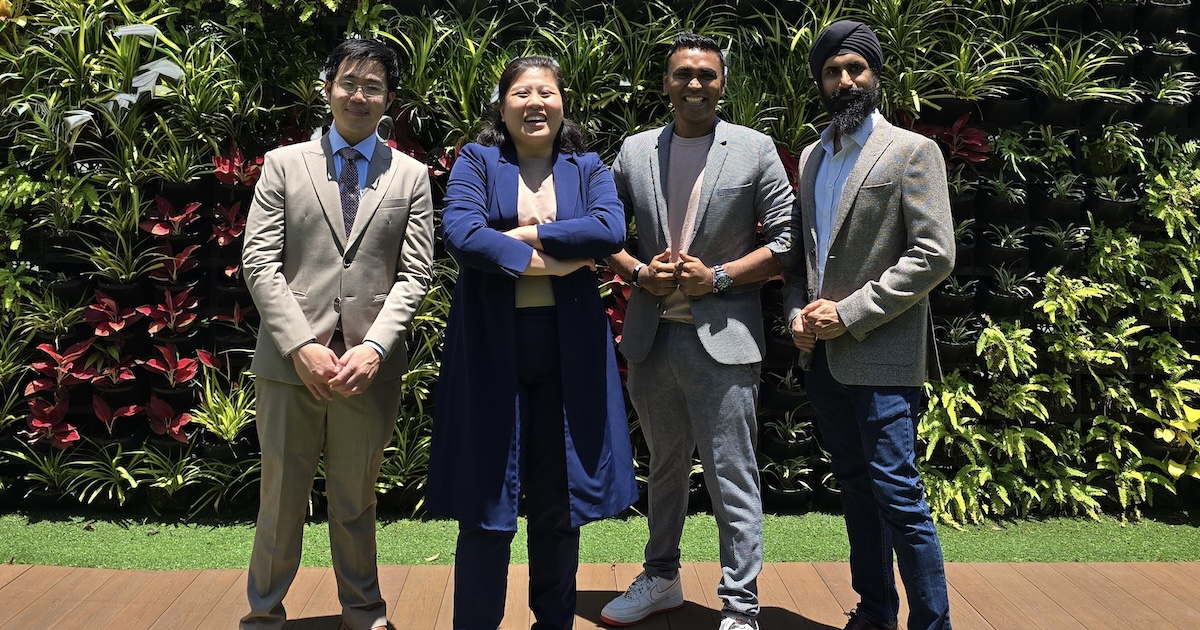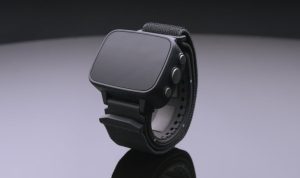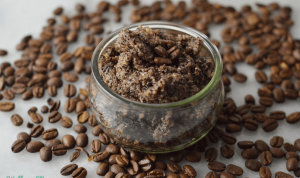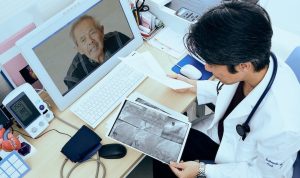
In recent times, scientific documentation enchancment instruments have more and more change into a staple companion for medical doctors.
This assistive instrument, which helps deal with clinician burnout, has advanced from simply automating transcriptions throughout scientific encounters or consultations to additionally being able to ambiently listening within the background and offering sensible suggestions, all powered by AI.
The adoption of smarter, extra correct scientific documentation instruments – popularly referred to as digital or AI scribes – has grown over the previous two years amid the rave over generative AI.
Now, as AI builders are engaged on a more moderen type of AI – agentic, which is able to performing by itself – it’s extremely seemingly that scientific documentation could be one among the rising AI’s first use purposes.
And certainly, a squad of Singaporean medical doctors is already making this occur.
AIGP Well being, a startup based by 4 medical doctors in Singapore, provides an agentic AI-powered scientific assistant that additionally capabilities as a real-time copilot supporting scientific judgment. Of their phrases, they mentioned the AI engine, referred to as Anzu, autonomously initiates structured historical past taking, triage, and affected person follow-up earlier than a clinician picks up a case.
The AI assistant, deployed by way of internet and WhatsApp cell software, passively listens earlier than and through a affected person session, processes structured and unstructured scientific enter, after which generates “correct, audit-compliant, and context-aware” session notes.
Apart from bettering notes completeness, Anzu reportedly reduces scientific documentation time “by as much as 40%” and “surfaces crucial patterns that handbook workflows usually miss.”
An answer to clinicians’ frustrations
In an interview with Mobihealth Information, every of the AIGP founders detailed how they began looking for an AI-powered resolution to an all-too-familiar wrestle amongst well being professionals: time taken away by administrative duties.
“In emergency settings, each minute issues. But, I usually spent as a lot time documenting circumstances as I did treating them. It is irritating when documentation takes priority over affected person presence. I’ve seen how this delay impacts triage accuracy, discharge planning, and follow-up adherence. AIGP Well being was born from this urgency – to offer that point again.”
Dr Nicholas Chia, CEO, emergency drugs specialist
“As a major care doctor, I might spend 15-20 minutes per affected person – of which 30%-40% went to notes, summaries, and follow-up scheduling. That is time I did not should hear deeply or personalise care. Worse, sufferers with advanced continual situations usually slipped by means of. This instrument provides us the house to be clinicians once more, not simply knowledge entry operators.”
Dr Prateet Singh Narula, Medical Lead, major care and continual illness specialist
“I’ve labored on the frontline and in AI labs. The disconnect was clear: instruments have been being constructed with out scientific actuality in thoughts. That is why our assistant was designed not simply to operate, however to suit. We centered on creating an AI that medical doctors belief and that learns from real-life utilization. It isn’t nearly lowering workload; it is enabling higher, sooner choices.”
Dr Yudara Kularathne, CTO, emergency doctor and AI Professional
“As a clinician, startup founder, part-time Grasp of Science scholar, affected person advocate, and dad or mum, I’ve needed to undertake an AI-first mindset simply to remain afloat. From managing analysis, group workflows, to even structuring my very own studying, AI has change into my co-pilot. So in the case of scientific care, the logic is similar. Sufferers with autoimmune illnesses do not current with textbook flares; they evolve subtly, unpredictably. If we do not observe that nuance – medical modifications, serologies, lived expertise – we threat lacking what issues. But, the psychological bandwidth it takes to doc all of this, by hand, is not any small factor. AIGP wasn’t simply born out of comfort. It is about reclaiming cognitive house, so we will assume clinically, act decisively, and deal with what truly modifications outcomes: the affected person in entrance of us.”
Dr Anindita Santosa, Product Growth, major care and rheumatology
Not one other AI scribe
The market is already inundated with varied choices for scientific documentation (together with those who incorporate AI), with some well being techniques creating in-house options.
“You are completely proper. There are a lot of AI scribes and documentation instruments coming into the market 1750134243. However most of them have been constructed for general-purpose transcription, retrofitted for healthcare, or developed exterior scientific environments,” mentioned Dr Narula.
The marketplace for scientific documentation enchancment instruments may very well be value over $10 billion by 2034, rising from round $5 billion right this moment, based mostly on the newest projections. This development is pushed by the growing quantity of affected person knowledge healthcare suppliers accumulate, compliance with authorities rules, and adoption of EMR/EHR techniques.
A significant participant on this house is Nuance, which Microsoft totally acquired in 2022. In Asia-Pacific, Heidi Well being from Melbourne, Australia, is rising in recognition; the startup just lately raised $17 million in funding to additional broaden its AI scribe’s capabilities. In the meantime, massive well being techniques throughout Asia, together with SingHealth in Singapore, South Korea’s largest hospital, Asan Medical Heart, and the personal healthcare supplier group Ramsay Well being Care in Australia, have developed their very own AI-powered, ambient scientific note-taking instrument.
“We’re not constructing one other AI scribe; we’re constructing a scientific cognition layer,” Dr Narula maintained.
By scientific cognition layer, he implies that what they provide isn’t a passive transcription instrument however “an energetic scientific assistant that thinks by way of illness trajectories, flare patterns, and choice help surfacing insights that transcend what was mentioned within the session.”
That is in contrast to current scientific documentation instruments that use generic speech-to-text wrapped in templated SOAP formatting, he added.
AIGP additionally plans to develop a hybrid structure that helps on-device edge processing for privacy-sensitive consultations, low latency, and offline resilience – one thing that cloud-only scribes have but to do, based on Dr Narula.
Anzu, he additional defined, is about “redefining what an assistant could be – an clever co-pilot that restores scientific focus, enhances affected person continuity, and adapts to real-world healthcare challenges with context, care, and scientific integrity.”
Initially designed for basic practitioners in high-volume major care settings, Anzu may also be utilized by:
-
major care physicians and household drugs practitioners;
-
specialists with continual case masses, akin to in endocrinology, rheumatology, geriatrics;
-
nurse practitioners, allied well being professionals, and care coordinators;
-
public well being groups conducting outreach, screening, or group follow-ups.
It may also be deployed within the following settings:
-
outpatient clinics and polyclinics
-
telemedicine platforms and hybrid digital clinics
-
group well being centres and cell well being items
-
home-based continual care applications
-
post-discharge care coordination items
-
rural well being outreach applications
“As a result of Anzu is designed to be platform-agnostic and accessible by way of low-barrier interfaces like WhatsApp, it adapts nicely to each tech-forward city well being techniques and resource-constrained environments,” Dr Narula famous. For now, the AI assistant could be built-in into EMR techniques by way of safe APIs whereas the corporate works to adjust to broadly adopted knowledge requirements, akin to HL7 FHIR.
Moreover, the Anzu co-pilot is among the few AI-powered instruments skilled for the Asia-Pacific healthcare atmosphere. It offers multilingual and code-switching help for localised care and tailor-made documentation types and alignment with native billing workflows.
Assistive, not authoritative
AIGP defined that its platform is constructed by taking a privacy-by-design and security-by-default method, which ensures well being knowledge safety at each stage of interplay throughout platforms or gadgets.
It options end-to-end encryption, role-based entry, and safe audit trails. Connections with exterior techniques are achieved by means of safe, authenticated API integrations with strict token-based entry and knowledge isolation protocols. It additionally requires express permission to permit third-party techniques to entry affected person knowledge.
In the meantime, its pure language processing system contains confidence scoring, escalation triggers, and computerized handover to clinicians if ambiguity, threat, or incomplete enter is detected
“Anzu by no means acts autonomously on scientific choices. All outputs are reviewed, permitted, or edited by a clinician earlier than being recorded or actioned, guaranteeing that AI stays assistive, not authoritative,” Dr Narula pressured.
The AIGP platform can be aligned with Singapore’s Private Information Safety Act and configurable to adjust to different jurisdictions, just like the European Union’s (EU) Normal Information Safety Regulation.
Moreover, the startup will pursue a voluntary SOC 2 cybersecurity certification to “future-proof in opposition to scale and coverage necessities.”
AIGP is ending a pilot examine with two major care clinics, with early suggestions from scientific employees being “extremely optimistic,” significantly round workflow effectivity and ease of integration.
“Preliminary outcomes point out a measurable influence, with clinics reporting at the very least a ten% discount in time spent on routine documentation and administrative duties,” Dr Narula shared.
Approaching change
Pushing the uptake of many digital and technological instruments amid digital transformation could spook and overwhelm medical doctors, particularly those that are much less digitally savvy.
“We perceive that many senior medical doctors aren’t immune to innovation – they’re immune to complexity. Most have skilled tech that over-promised and under-delivered, usually including extra steps to their workflow moderately than eradicating them,” famous Dr Narula.
“Medical doctors don’t want extra dashboards—they want extra time,” he emphasised.
With their AI-powered scientific co-pilot, AIGP says they take a modular method to adoption. “Senior medical doctors can begin with one operate, like automated history-taking, and regularly broaden to scientific summarisation and follow-up instruments as consolation builds.”
Anzu is offered on WhatsApp, which many clinicians are already aware of and are utilizing every day. “This instantly lowers the barrier to entry and hurries up onboarding,” Dr Narula claimed.
The assistant additionally provides transparency: it permits medical doctors to see, edit, and approve each output earlier than they’re saved or despatched, “restoring a way of management moderately than forcing a brand new workflow,” Dr Narula defined.
Furthermore, it offers explainable AI outputs, audit trails, and clear documentation protocols.
“Our objective is to not digitise healthcare for its personal sake, however to amplify the clinician’s experience with out asking them to alter who they’re or how they assume. The very best tech is the type that quietly helps – with out getting in the way in which.
“We see AI not as an add-on, however as a scientific infrastructure: purpose-built to revive cognitive house, scale back administrative drag, and allow extra exact, steady care.
“In the end, our objective is to empower any healthcare supplier burdened by documentation and follow-up, and any well being system seeking to scale personalised care with out scaling burnout,” Dr Narula mentioned.
Within the subsequent 12 months, AIGP plans to safe the Singapore Well being Sciences Authority’s regulatory clearance and conduct last pilots and technical validation with outpatient and GP clinics earlier than commercially launching its agentic AI-powered platform. It’ll even be making ready for entry into Australia.
The corporate additionally shared that within the subsequent three years, it would search clearance from the Therapeutic Items Administration of Australia, deploy its AI resolution to major care and telehealth clinics in Singapore and Australia, broaden its software to cowl extra continual care and documentation use circumstances, and pursue safer integrations with third-party EHRs. The corporate additionally seems to be to acquire CE marking from the EU.
AIGP additionally expects to regularly develop from clinic-level rollouts to well being network-level implementations inside regulated markets.













